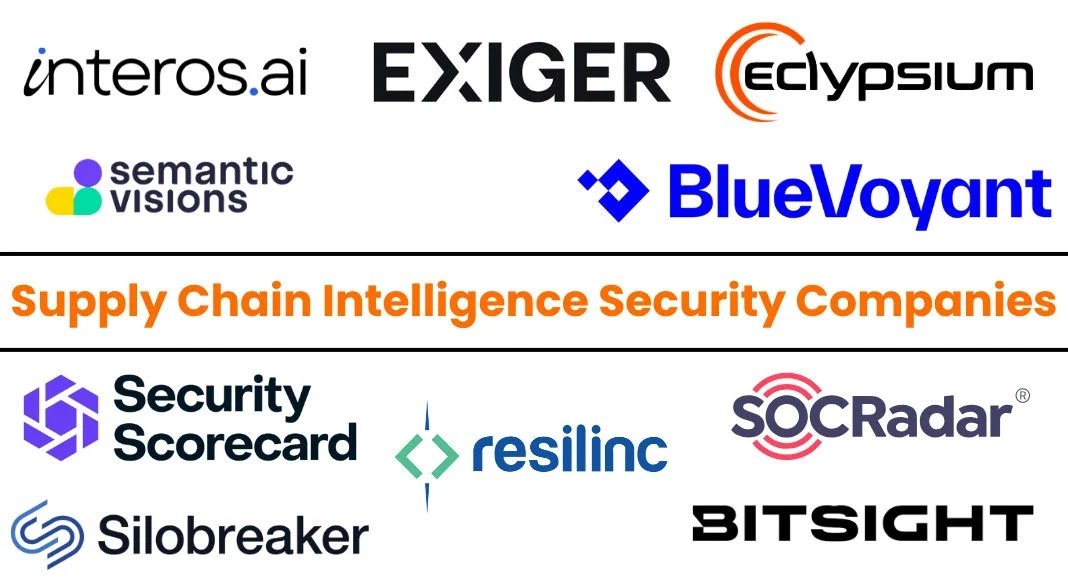Understanding Supply Chain Intelligence Security Companies in 2025
In today’s rapidly evolving global economy, the secure management of supply chains has emerged as a vital aspect for businesses worldwide. The challenges posed by cyber-attacks, data breaches, and geopolitical disruptions are significant, leading organizations to prioritize the integrity and continuity of their supply chains. This shift has birthed a new breed of companies dedicated to supply chain intelligence security, leveraging advanced technologies to secure these critical operations.
The Growing Need for Supply Chain Intelligence
As companies become increasingly interconnected, traditional security measures often fall short. The complexity of modern supply chains creates a myriad of vulnerabilities. Organizations are now turning to specialized supply chain intelligence security platforms that provide enhanced visibility across multiple tiers of suppliers and partners.
These platforms improve risk detection, threat prediction, and compliance management through continuous monitoring and data-driven insights. By focusing on top-tier providers, businesses can access cutting-edge innovations and expert support that are crucial for adapting to emerging threats.
Key Criteria for Evaluation
When assessing the best supply chain intelligence security companies in 2025, several key criteria should guide your analysis:
- Real-time Monitoring: The capability to observe supply chain activities as they happen.
- AI & Machine Learning: Tools that analyze vast data to identify risks and anomalies.
- Supplier Risk Assessment: Methods for evaluating the reliability and security posture of suppliers.
- Compliance Management: Features that ensure adherence to laws and regulations.
- Incident Response: Mechanisms in place for addressing and mitigating threats rapidly.
This evaluation ensures businesses can identify solutions that meet their unique security needs effectively.
Top 10 Supply Chain Intelligence Security Companies in 2025
1. Interos
Why We Picked It: Interos shines with its AI-driven platform, combining risk analytics and real-time supplier insights. Its ability to map complex supply chains and identify hidden dependencies offers unparalleled visibility.
Highlighted Features:
- Comprehensive supply chain mapping.
- Predictive analytics for forecasting risks from various domains, including geopolitical and cybersecurity threats.
- User-friendly dashboards for swift decision-making.
2. BlueVoyant
Why We Picked It: Focusing on cyber risks, BlueVoyant’s platform integrates threat intelligence to proactively detect vulnerabilities in vendor ecosystems.
Highlighted Features:
- Dark web monitoring and external threat assessments.
- Real-time risk alerts tailored to specific vendor vulnerabilities.
- Managed detection and response capabilities.
3. Eclypsium
Why We Picked It: Specializing in hardware and firmware security, Eclypsium addresses vulnerabilities at hardware levels that traditional tools might overlook.
Highlighted Features:
- Firmware integrity verification.
- Threat detection focused on supply chain attacks targeting hardware.
- Device inventory management.
4. SecurityScorecard
Why We Picked It: Renowned for its transparency, SecurityScorecard offers continuous supplier risk scoring based on various security domains.
Highlighted Features:
- Multi-faceted risk insights that facilitate better vendor relationship management.
- Automated alert systems for high-risk vendors.
- Easy-to-understand visual security ratings.
5. Exiger
Why We Picked It: With a robust focus on regulatory compliance, Exiger blends risk intelligence with thorough due diligence processes.
Highlighted Features:
- Automated workflows for risk scoring and compliance monitoring.
- Extensive data analysis capabilities that identify hidden risks in supplier networks.
- Tailored solutions for highly regulated industries.
6. SOCRadar
Why We Picked It: SOCRadar specializes in external threat detection and risk management, offering powerful analytics to monitor supplier ecosystems.
Highlighted Features:
- Extensive threat intelligence feeds.
- Automated alerts and workflows for incident response.
- Comprehensive dashboards that consolidate multiple data streams for actionable insights.
7. Resilinc
Why We Picked It: Resilinc excels in tracking global supply chain risks and offers real-time disruption monitoring.
Highlighted Features:
- Automated alerts for events affecting suppliers.
- Impact modeling to assess potential disruptions.
- Supplier scorecards to enhance supplier collaboration and accountability.
8. Bitsight
Why We Picked It: Focused on objective cybersecurity assessments, Bitsight provides risk scores based on real-world security performance.
Highlighted Features:
- Continuous vendor security monitoring to minimize risk exposure.
- Automation of vendor risk assessments.
- Comprehensive reporting to enhance communication around risk management.
9. Silobreaker
Why We Picked It: Silobreaker leverages AI to offer advanced threat intelligence across various risk landscapes affecting supply chains.
Highlighted Features:
- Aggregation of global data sources for threat detection.
- AI-powered contextual analysis for better decision-making.
- Early warning systems that help prioritize risks.
10. Semantic Visions
Why We Picked It: By employing semantic analysis, Semantic Visions excels in extracting risk insights from unstructured data sources.
Highlighted Features:
- Real-time alerts for emerging threats.
- Customizable monitoring tailored to specific supplier risks.
- Advanced search capabilities that enhance situational awareness.
The Future of Supply Chain Security
Investing in supply chain intelligence security solutions is no longer optional in the modern landscape; it is essential. Each of these companies provides unique strengths and technologies that cater to the varying needs of organizations. Prioritizing the right platform can enhance visibility, bolster risk detection capabilities, and ensure timely responses to safeguard the integrity of supply chains. As we move further into 2025 and beyond, staying ahead of potential threats will be crucial for maintaining competitive advantage in any industry.





